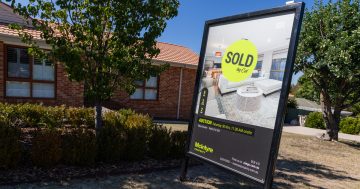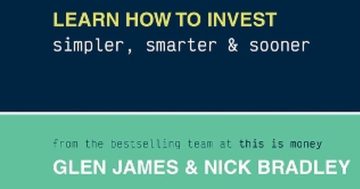Cynthia Meyer* says the state of your financial health will vary at different stages in your life and career.

Photo: Skynesher
What does it mean to be “financially well” at different times in your life?
The first thing I tell someone is that what matters most is how they are doing compared to their own goals.
“Financial wellness” is a dynamic state of financial health.
It doesn’t mean that someone has a certain net worth or complete financial security.
Being financially healthy, like being physically healthy, is about enjoying daily life, maintaining balance and protecting yourself against devastating risks.
The second thing I say is that what financial wellness looks like is different at different ages.
What’s robust financial health for a 26-year-old is different from a 45-year-old.
Another way to look at it is by career stage.
Work through this checklist to get an idea of your financial health.
Early career (in your 20s): Build a strong foundation
- I have consistent income which covers the basics.
- I have health insurance.
- I have at least $1,000 in a savings account for emergencies.
- I add to my emergency savings account every month with the goal of eventually getting to six months’ worth of must-pay expenses.
- I have a spending plan/budget and I monitor my expenses.
- I know my short-term and long-term financial goals.
- I know my credit score and what affects it.
- I do not carry any high interest debt. I pay my credit cards off every month.
- I am contributing enough to my superannuation.
- I have a plan to pay back my student loans, if I have them.
- If I’m a renter, I have renter’s insurance.
- I know my investing personality (hands on vs. hands off) and have a simple investing strategy.
- If I’m married or living with my partner, we have full financial disclosure and agree on how we manage money together.
- By late 20s/early 30s, I am able to buy a first home if that’s my goal.
- I have disability income insurance.
- I know the impact of fees on my investments and minimise fees when possible.
Mid-career (age 30–44): Balance all the real-life stuff
- I have a will with guardianship provisions for my kids if I have them.
- I own my home if that is a goal.
- If anyone depends on my income for their lifestyle (spouse, kids), I have adequate life insurance.
- I consistently spend less than I earn and avoid accumulating high interest debt.
- I have a systematic plan to save for shorter term goals, such as vacations, home maintenance and taxes.
- My transportation expenses (car, insurance, fuel, parking) are less than 8 per cent of my income.
- My housing expenses (mortgage/rent, utilities, insurance, maintenance) are less than a third of my income.
- If I have kids, I know how much university may cost and I am funding education accounts even if it is only in small amounts.
- I evaluate my insurance coverage every year.
- I have run a retirement projection and I know if I am on track or not for retirement at my desired age.
- My investments are well-diversified and I have a consistent strategy.
- I have repaid my student loans if I had them.
Late career (age 45–54): Maximise savings
- According to my retirement projection, I am on track for my retirement goal.
- I am maximising my retirement plan contributions.
- I have a complete estate plan (will, health care directive, health care and financial powers of attorney).
- If I’m single, I’ve chosen someone who can make health care and financial decisions for me if I’m not able to do so myself.
- I know my investment risk tolerance and invest accordingly.
- I monitor my investments and rebalance at least annually.
- I am building savings outside of my retirement accounts and I am investing there using tax-efficient strategies.
- I know how I’ll fund long term care needs in retirement.
- I have increased my emergency savings over time to cover larger needs, such as a longer period of unemployment or reduced income.
- My assets are adequately protected.
- I have discussed my parents’ financial situation and wishes for health care with them.
- I know in general where I want to live in retirement.
Pre-retiree (age 55+): Prepare for financial independence
- If I intend to stay in my current home in retirement, I have a plan to pay off my mortgage by retirement or early in my retirement.
- I have a plan to reallocate my investments between now and retirement to moderate risk.
- I have a plan for my retirement accounts at retirement and an investment strategy for generating necessary income.
- I know when I want to retire, if I’ll retire in stages, and what I plan to do in retirement.
- I have a backup plan in case I leave the workforce earlier than expected due to illness or layoff.
- I have purchased long term care insurance if that’s how I plan to fund my long term care needs.
- If I am eligible for a pension, I know the pros and cons of my distribution choices.
- If I’m not planning to stay in my current home, I have a plan to move and/or downsize.
When you review your list, what do you see?
Are you generally on track with the benchmarks for your age group or career stage?
If you are, great!
That’s certainly not typical.
If you’re not, that’s perfectly normal.
The majority of people have areas in their financial life where they are doing well and areas which need work.
Pick one thing on the benchmark list for your age group/career stage which bothers you the most and work on that.
Financial wellness is something you’ll practise your entire life, just like physical, mental and spiritual wellness.
* Cynthia Meyer is a financial planner and research analyst with Financial Finesse. She tweets at @cynthiameyer_FF.
This article first appeared at www.forbes.com.











